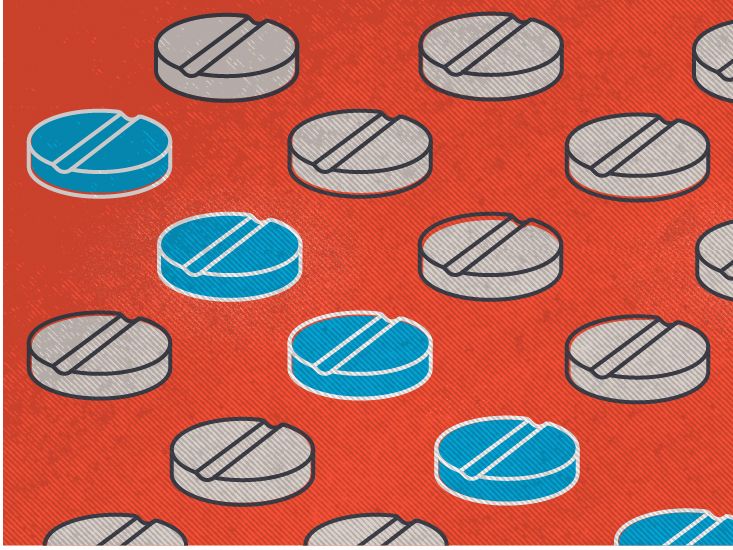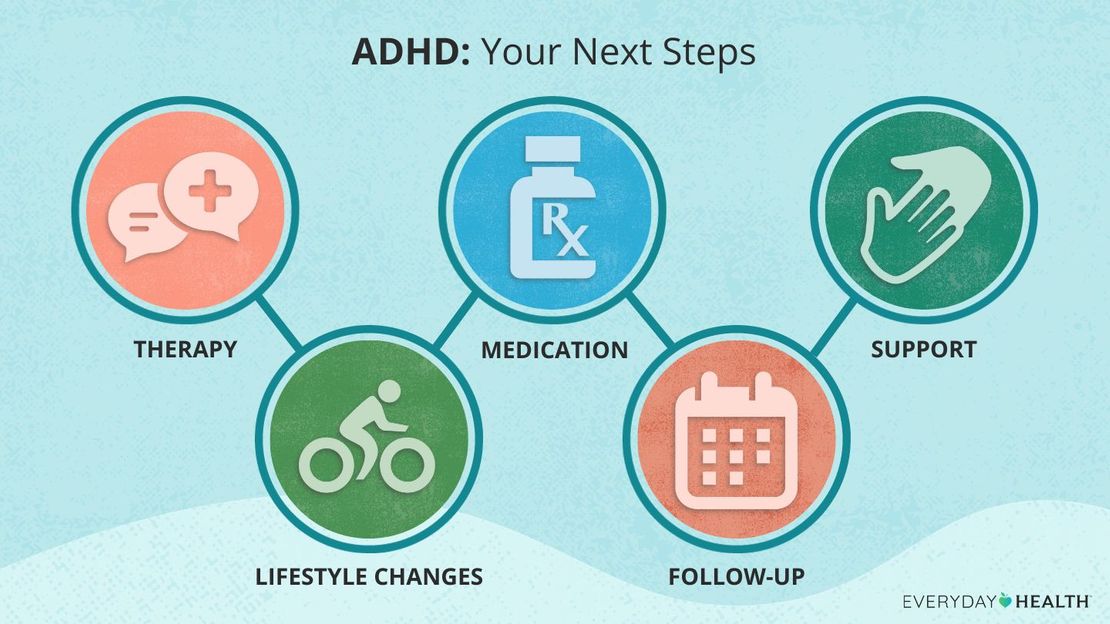Understanding Adderall and Bupropion
Adderall is a combination of two stimulant drugs, amphetamine and dextroamphetamine. It works by increasing the levels of dopamine and norepinephrine in the brain, which can improve focus, concentration, and attention span. Adderall is a Schedule II controlled substance, meaning it has a high potential for abuse and dependence.
Bupropion, on the other hand, is a non-stimulant antidepressant that works by inhibiting the reuptake of dopamine and norepinephrine in the brain. It is often prescribed as an alternative to traditional antidepressants like selective serotonin reuptake inhibitors (SSRIs) because it has a lower risk of causing weight gain or sexual dysfunction.
Potential Interactions and Risks
While it is generally safe to take Adderall and bupropion together, there are some potential interactions and risks that you should be aware of.
Increased Risk of Serotonin Syndrome
Both Adderall and bupropion can increase the levels of serotonin in the brain. While this is usually not a problem when taking either medication alone, combining them can potentially increase the risk of developing serotonin syndrome. Serotonin syndrome is a rare but potentially life-threatening condition that occurs when there is too much serotonin in the brain. Symptoms of serotonin syndrome include confusion, agitation, tremors, muscle rigidity, and high fever.
Increased Cardiovascular Risk
Both Adderall and bupropion can increase blood pressure and heart rate. When taken together, there is a potential risk of further increasing these effects, which could be problematic for individuals with underlying cardiovascular conditions or those who are at risk for heart disease.
Increased Risk of Seizures
Adderall and bupropion both carry a small risk of causing seizures, especially at higher doses. When combined, this risk may be slightly increased. If you have a history of seizures or other neurological conditions, you should discuss this with your healthcare provider before taking these medications together.
Monitoring and Precautions
If your healthcare provider decides that it is appropriate for you to take Adderall and bupropion together, there are several precautions and monitoring steps that should be taken:
Start with Low Doses
It is generally recommended to start with the lowest possible doses of both medications and gradually increase them as necessary. This can help minimize the risk of side effects and interactions.
Monitor Blood Pressure and Heart Rate
Your healthcare provider should regularly monitor your blood pressure and heart rate, especially when starting or adjusting the doses of either medication. This can help identify any potential cardiovascular issues early on.
Watch for Serotonin Syndrome
Be aware of the symptoms of serotonin syndrome and report any unusual symptoms to your healthcare provider immediately. If serotonin syndrome is suspected, one or both medications may need to be stopped.
Consider Drug Holidays
Your healthcare provider may recommend taking occasional "drug holidays" from one or both medications. This involves temporarily stopping the medication(s) for a brief period to help reduce the risk of long-term side effects or dependence.
Alternative Treatment Options
If you are concerned about the potential risks of taking Adderall and bupropion together, or if you experience significant side effects, there are alternative treatment options that you can discuss with your healthcare provider:
Non-Stimulant ADHD Medications
There are several non-stimulant medications that can be used to treat ADHD, such as guanfacine, clonidine, and atomoxetine. These medications work differently than stimulants like Adderall and may have a lower risk of interactions with bupropion.
Alternative Antidepressants
If you are taking bupropion for depression, your healthcare provider may consider switching you to a different antidepressant medication that has a lower risk of interactions with Adderall. This could include SSRIs, serotonin-norepinephrine reuptake inhibitors (SNRIs), or other non-stimulant antidepressants.
Non-Pharmacological Treatments
In addition to medication, there are several non-pharmacological treatments that can be effective for managing ADHD and depression. These include cognitive-behavioral therapy, mindfulness-based interventions, exercise, and lifestyle modifications.
Conclusion
While it is generally safe to take Adderall and bupropion together, there are potential risks and interactions that should be carefully considered. If you are taking both medications, it is essential to follow your healthcare provider's recommendations, monitor for any side effects, and discuss alternative treatment options if necessary. By working closely with your healthcare team and being proactive about your health, you can effectively manage both ADHD and depression while minimizing the risks associated with taking multiple medications.
FAQs
Is it safe to take Adderall and bupropion together?
It is generally safe to take Adderall and bupropion together when prescribed and monitored by a healthcare provider. However, there are potential risks and interactions that should be carefully considered, such as increased risk of serotonin syndrome, cardiovascular effects, and seizures.
Can Adderall and bupropion cause serotonin syndrome?
Yes, there is a potential risk of developing serotonin syndrome when taking Adderall and bupropion together, as both medications can increase serotonin levels in the brain. Symptoms of serotonin syndrome include confusion, agitation, tremors, muscle rigidity, and high fever.
Do I need to monitor my blood pressure and heart rate while taking Adderall and bupropion?
Yes, it is important to monitor your blood pressure and heart rate regularly when taking Adderall and bupropion together, as both medications can increase these cardiovascular effects. Your healthcare provider should check these regularly, especially when starting or adjusting the doses of either medication.
Are there alternative treatment options for managing ADHD and depression without taking Adderall and bupropion together?
Yes, there are several alternative treatment options that you can discuss with your healthcare provider, including non-stimulant ADHD medications, different antidepressants with lower interaction risks, and non-pharmacological treatments such as cognitive-behavioral therapy, mindfulness-based interventions, exercise, and lifestyle modifications.
Disclaimer: This article is for informational purposes only and does not constitute medical advice. Always consult with a healthcare professional before starting any new treatment regimen.
Related Coverage
See how Concerta works to improve focus and manage ADHD symptoms by balancing key brain chemicals for up to 12 hours....
Access real, professional online ADHD treatment from home. Find diagnosis, therapy, and medication options that fit your life....
Daytrana side effects such as skin irritation, insomnia, and appetite loss can be eased with timing, placement, and diet tips....
If your child excessively jumps on things and can't sit still, it could signify ADHD - but also may just be normal behavior. Learn how to evaluate when fidgety actions require further assessment....
Vyvanse may trigger or exacerbate tinnitus in some people due to its effects on dopamine levels in the brain. Learn about the risks, studies on side effects, and coping strategies....
Protein snacks like yogurt, nut butter, cheese and eggs provide kids with sustained energy and nutrition for growth and development. Discover the best snacks....
Make an ADHD grocery list excluding sugar, artificial ingredients, white flour while focusing on proteins, fruits, vegetables and high fiber grains to minimize symptoms....
ADHD can make showering difficult. But using reminders, hygiene checklists, and creating a sensory-friendly bathroom space can help build showering habits....
Explore the potential benefits of a gluten-free diet for children with ADHD. Learn about the connection between gluten and ADHD symptoms, and get practical tips for implementing a balanced, gluten-free lifestyle....
Emerging research explores whether intermittent fasting diets could help support brain health and relieve ADHD symptoms in children. Learn the potential benefits and risks....









